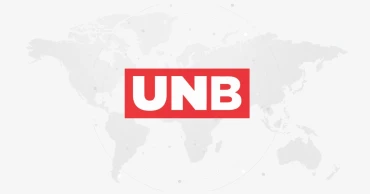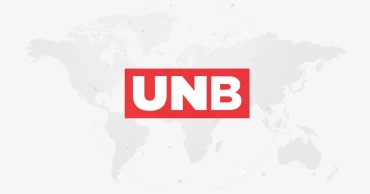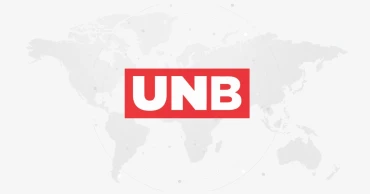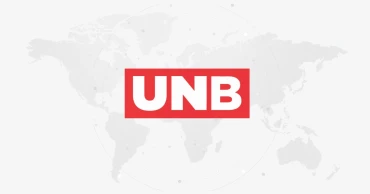Women’s rights
Governments criticized for keeping women from peace talks
On the eve of International Women’s Day, leading women’s rights campaigners at the United Nations and the African Union and a Nobel Peace Prize laureate criticized male-dominated governments Tuesday for excluding women from peace negotiations.
They complained that governments are ignoring a U.N. resolution adopted in 2000 demanding equal participation for women in talks to end conflicts.
Sima Bahous, head of the U.N. agency promoting gender equality, lamented “the regression in women’s rights.” She told the Security Council that “we have neither significantly changed the composition of peace tables, nor the impunity enjoyed by those who commit atrocities against women and girls.”
Also Read: DigitALL: Role of tech in promoting gender equality highlighted this Women’s Day
Bahous, executive director of UN Women, called for “a radical change of direction.”
She said action should be taken to mandate the inclusion of women at every meeting and in every decision-making process, with consequences for non-compliance. And funds should be channeled to women’s groups in conflict-affected countries where the money is most needed, she said.
The Security Council was assessing the state of the resolution it adopted on Oct. 31, 2000, that stresses the important role of women in preventing and resolving conflicts and demands their equal participation in all efforts to promote peace and security. It also calls on all parties to conflicts to protect women and girls from gender-based violence, especially rape and other forms of sexual abuse.
Also Read: Loss due to women’s exclusion from digital world could grow to $1.5 trillion by 2025 without action: UN Chief
Since the 20th anniversary of the resolution in 2020, Bahous said, Afghanistan’s Taliban rulers have imposed “gender apartheid” and war in Ethiopia’s northern Tigray region reportedly led to sexual violence “at a staggering scale.” Coups in conflict-affected countries in Africa’s Sahel and Sudan to Myanmar have dramatically shrunk the civic space for women’s organizations and activists, she added.
The U.N. Commission on the Status of Women began its annual two-week session Monday focusing on closing gender gaps in technology and innovation. It is also examining digital harassment and disinformation aimed at women that fosters violent misogyny.
Bahous cited a recent study that says politically motivated online abuse of women within Myanmar and from the country increased at least fivefold after that country's February 2021 coup.
“This mainly takes the form of sexualized threats and the release of home addresses, contact details, and personal photos or videos of women who had commented positively on groups opposing military rule in Myanmar,” she said.
Mirjana Spoljaric Egger, president of the International Committee of the Red Cross, addressed the gender-based violence aspect of the U.N. resolution, saying that “more than 100 armed conflicts are raging around the world” and hard-won gains toward gender equality are being reversed.
“This is no coincidence,” she said. “As respect for gender equality declines, violence rises.”
Egger said the Red Cross sees “the brutal impact” every day of “sexual violence at the hands of arms bearers at shocking levels.”
Liberian peace activist Leymah Gbowee, who mobilized street protests against the brutality of the country’s long civil war and shared the 2011 Nobel Peace Prize, told the council that “it has been proven time and again that men do make war but are unable to make peace themselves.”
“Sadly, the conversation is the same in 2023,” she said. “How do we discuss the issue of peace and security and leave out fifty percent of the population?”
Gbowee said that as the U.N. resolution on women, peace and security approaches its 23rd anniversary “investment in its implementation is either stalled or slow.”
Action plans submitted by governments are “a tool for politicians and political actors to window-dress women peace and security issues as they cover up for their failure" to advance women’s rights, she said.
Gbowee called for women peace activists to be part of all peace missions, calling them “custodians of their communities.”
“We will continue to search for peace in vain in our world unless we bring women to the table,” she warned.
Bineta Diop, the African Union Commission chair’s special envoy on women, peace and security, said in a virtual briefing to the council that the current impact of armed conflict on women and girls “is precarious.”
Diop cited kidnappings in the Sahel, rape, killing and maiming of young girls and boys in Congo, and atrocities in the Lake Chad Basin and in East Africa, including “an unprecedented rate of sexual violence.”
“Unfortunately, while many women are engaged in the community and peacebuilding initiatives, their voice is yet to be heard in peace negotiations and mediation where roadmaps to return to peace are drawn,” she said.
Diop said the African Union is helping to promote African women leaders who can sit at peace tables and to bring women from rival regions together, as just happened at a retreat in Pretoria, South Africa, for Ethiopian women.
2 years ago
Australia pulls out of Afghanistan cricket series
Australia has pulled out of its upcoming men’s one-day international cricket series against Afghanistan, citing further restrictions on women’s rights imposed in the country by the ruling Taliban government.
Australia was set to meet Afghanistan in the United Arab Emirates for three matches in March. But following consultation with the Australian government and other groups, Cricket Australia said Thursday it would scrap the series.
Read more: Afghan women athletes barred from play, fear Taliban threats
When Kabul fell to the Taliban in August 2021, the extremist group banned women from playing sports on the grounds that doing so would contravene Islamic laws requiring their hair and skin to be covered.
In a statement on Thursday, Cricket Australia said the decision to withdraw from the men’s one-day international series followed recent Taliban restrictions placed on women’s and girls’ education and employment opportunities and their ability to access parks and gyms.
“CA is committed to supporting growing the game for women and men around the world, including in Afghanistan, and will continue to engage with the Afghanistan Cricket Board in anticipation of improved conditions for women and girls in the country,” CA said.
The cancellation of the series comes after Australia cited similar reasons for scrapping a one-off test match against Afghanistan that had been set to be played in Hobart, Australia in November 2021.
Read more: 4 NGOs suspend work in Afghanistan after Taliban bar women
In December, the Taliban banned women from completing higher education, having prohibited attendance at gyms and parks a month earlier.
According to the United Nations, women are also banned from attending school beyond the sixth grade and working most jobs outside of their homes.
In November 2021, the ICC formed a working group aiming to support and review women’s and men’s cricket in Afghanistan but more than a year later, the country remains the only full member of the ICC without a fully operational women’s team.
3 years ago
Zonta International to launch 16-day activism campaign on ‘Violence Against Women’ from Nov 25
The Zonta International, a service organisation, will launch ‘16 Days of Activism’ campaign from November 25 to December 10, with focus on women’s rights and ending violence against women and girls.
To initiate the activism program, six Zonta Clubs in Dhaka and Chattogram will organise a rally at the Gulshan Society Lake Park on November 25, according to the press release of the organisation.
Read more: Zonta Club of Greater Dhaka launches 16-day activism campaign on child marriage, gender-based violence
During this period specifically, all clubs and districts are encouraged to take part in the ‘Zonta Says NO to Violence Against Women’ campaign and to take local, national and international actions to influence the making and implementation of laws, as well as changing gender-based attitudes and behaviors to end violence against women and girls.
Zonta International is a service organisation, with members who are professionals and are leaders in their own capacities. Zonta stands for women’s rights and advocate for gender equality, education for all and work to put an end to Child Marriage and gender-based violence, said the release.
Read more: Zonta Club awards 4 women for contributions to society during pandemic
This organisation believes in making the world a better place by empowering women and finds joy in doing this in a supportive community of like-minded professionals from diverse clubs and institutions, it added.
Zonta International observes ‘16 Days of Activism’ every year on 25 Nov, International Day for the Elimination of Violence Against Women, which concludes on 10 Dec, the International Human Rights Day.
3 years ago
Women’s groups call for UN peacekeeping force in Afghanistan
Women’s rights supporters and faith leaders are calling for a United Nations peacekeeping force for Afghanistan to protect hard-won gains for women over the last two decades as American and NATO forces complete their pullout from the war-torn country and a Taliban offensive gains control over more territory.
Under the Taliban, women were not allowed to go to school, work outside the home or leave their house without a male escort. And though they still face many challenges in the country’s male-dominated society, Afghan women have increasingly stepped into powerful positions in numerous fields — and many fear the departure of international troops and a Taliban takeover could take away their gains.
In a May 14 letter obtained by The Associated Press, 140 civil society and faith leaders from the U.S., Afghanistan and other countries “dedicated to the education and rights of women in Afghanistan” asked U.S. President Joe Biden to call for a U.N. peacekeeping force “to ensure that the cost of U.S. military withdrawal from Afghanistan is not paid for in the lives of schoolgirls.”
Also read: Taliban surge in north Afghanistan sends thousands fleeing
The letter also asked the U.S. to increase humanitarian and development aid to Afghanistan “as an important security strategy” to strengthen women and girls and religious minorities like the Hazaras. Three bombings at a high school in a Hazara neighborhood in Kabul on May 8 killed nearly 100 people, all of them Hazara and most of them young girls just leaving class.
The signatories blamed the Trump administration for failing to honor a U.N. Security Council resolution adopted in 2000 demanding equal participation for women in activities promoting global peace “by refusing to insist that women were part of the peace talks” with the Taliban.
Sakena Yacoobi, founder of the Afghan Institute of Learning which runs schools across 16 provinces, is quoted in the letter as saying: “For 20 years the West told the women of Afghanistan they are free. Free to learn, to grow, to be a human being independent of men’s expectations of who they are.”
Also read: US to keep about 650 troops in Afghanistan after withdrawal
“What the Taliban did in the 1990s was bad enough,” she said. “What will they do now, with a generation of women taught to expect freedom? It will be one of the greatest crimes against humanity in history. Help us save them. Please. Help us save who we can.”
Among the signatories of the letter were Yacoobi; feminist activist and writer Gloria Steinem; former U.N. deputy secretary-general Mark Malloch Brown who now heads the Open Society Institute; Filmmaker and philanthropist Abigail Disney; former UNICEF executive director Carol Bellamy; Betty Reardon, the International Institute on Peace Education’s founding director emeritus; The Rev. Dr. Chloe Breyer, executive director of The Interfaith Center of New York; Masuda Sultan, co-founder of Women for Afghan Women; and Nasir Ahmad Kayhan, UNESCO program manager in Afghanistan.
In April the Taliban promised that women “can serve their society in the education, business, health and social fields while maintaining correct Islamic hijab.” It promised girls would have the right to choose their own husbands, but offered few other details and didn’t guarantee women could participate in politics or have freedom to move unaccompanied by a male relative.
Deborah Lyons, the U.N. special envoy for Afghanistan, told the Security Council on June 22 that “preserving the rights of women remains a paramount concern and must not be used as a bargaining chip at the negotiating table.”
In a follow-up letter on July 12 to U.S. Ambassador Linda Thomas-Greenfield, a wider international group expressed deep concern “for the lives and well-being of the people of Afghanistan, especially women and girls now under great threat” and called for a U.N. peacekeeping mission to deploy to Afghanistan “as soon as practically possible.”
The signatories said they are convinced the 2000 Security Council resolution obliges U.N. member states “to protect women in such circumstances.”
The United Nations has a political mission in Afghanistan. A U.N. peacekeeping mission would have to be approved by the Security Council, where the five permanent members -- the U.S., Russia, China, Britain and France -- have veto power.
The letter to the U.S. ambassador said similar messages were being sent to other U.N. ambassadors from citizens in their countries asking for a peacekeeping operation. It asked Thomas-Greenfield to “take action toward the initiation of a peacekeeping operation in Afghanistan.”
A U.S. mission spokesperson did not respond to a request for comment on the call for a U.N. peacekeeping force, instead stressing Thursday that the Biden administration will continue to support Afghan forces and U.S. “diplomatic, humanitarian and economic engagement in the region.”
“We are putting our full weight behind diplomatic efforts to reach a peace agreement between the Taliban and the Afghan government,” said the spokesperson, who could not be named, adding the U.S. remains the largest aid donor to Afghanistan and continues to support the U.N. political mission known as UNAMA.
4 years ago
UK abolishes 'sexist' tax on women's sanitary products
Britain on Friday became the latest country to abolish the so-called “tampon tax,” eliminating sales taxes on women’s sanitary products.
5 years ago
Anti-rape protests keep up momentum, as feminist group rejects death penalty
Activists of different organisations, including those working on women’s rights, staged demonstrations on the road in front of the Jatiya Sangsad on Saturday, protesting the growing incidents of rape and demanding the toughest punishment for rapists.
5 years ago
International Women’s Day celebrated
The International Women's Day was celebrated in the country, as elsewhere across the globe, on Sunday highlighting women’s rights and equality.
5 years ago
Women’s rights can’t be ensured without democracy: Fakhrul
BNP secretary general Mirza Fakhrul Islam Alamgir on Sunday said the rights of women will not be ensured without the ‘restoration’ of democracy in the country.
5 years ago




.jpg)


.jpg)



